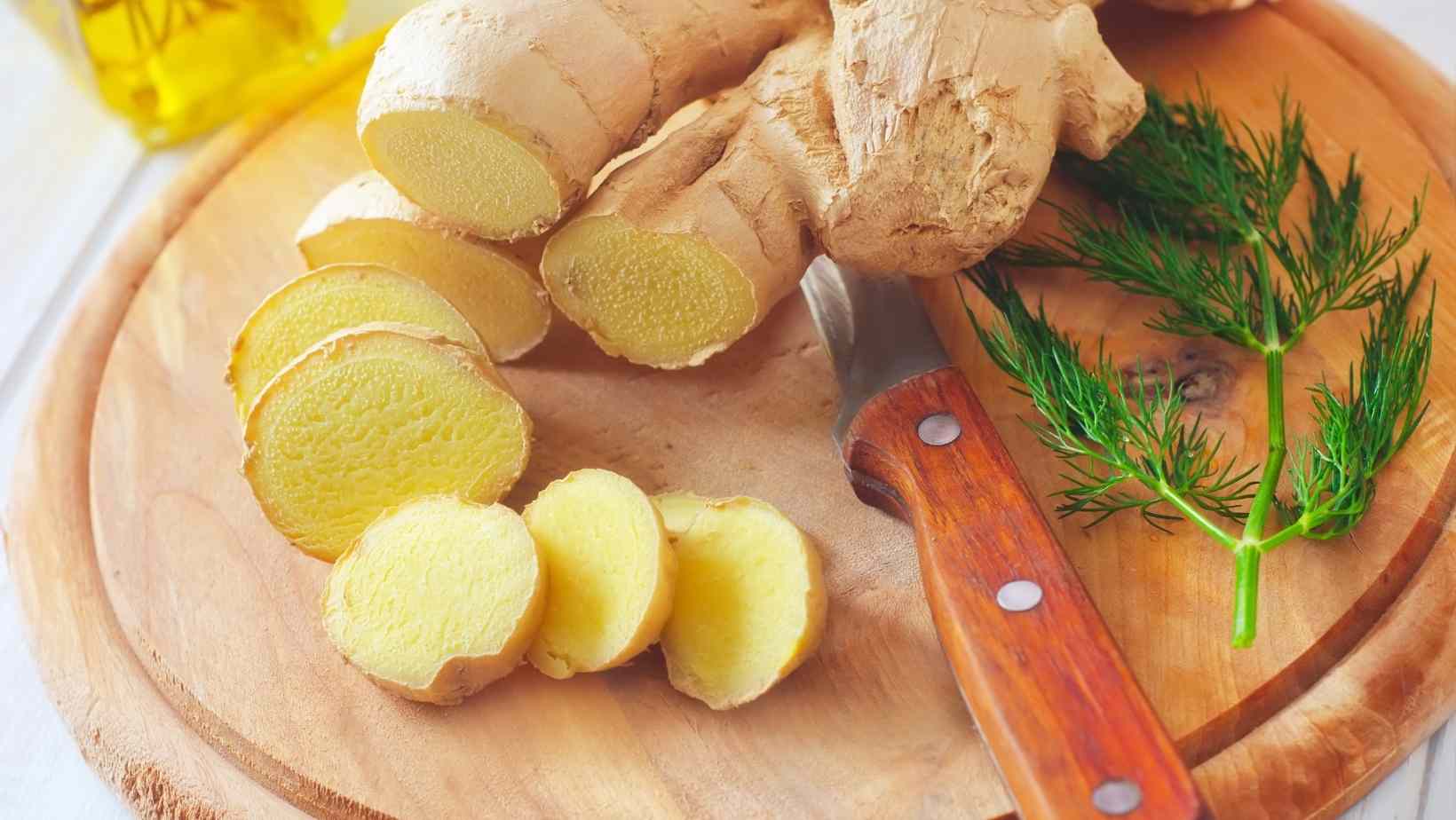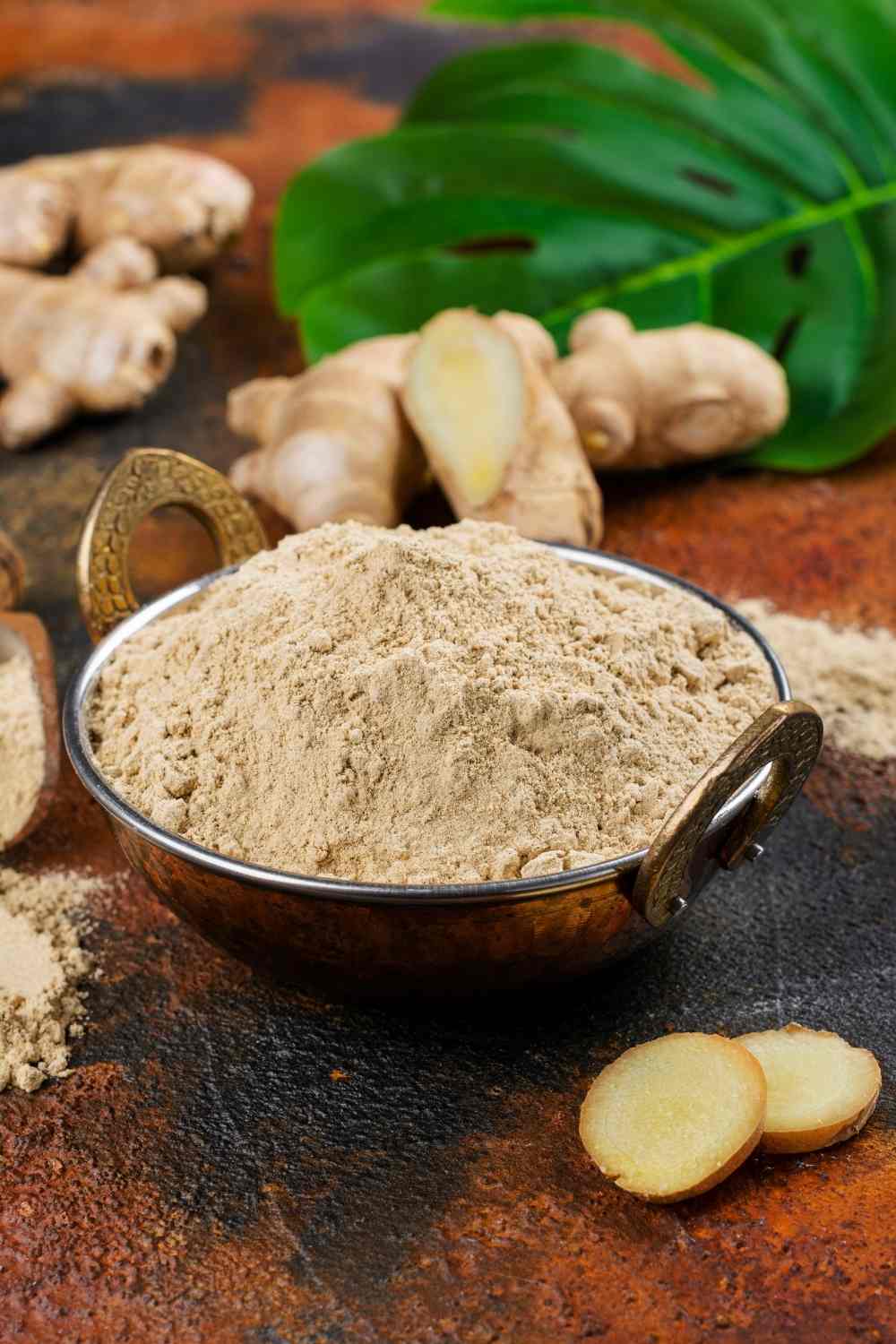Ginger may be delicious as a spice in your favourite cuisine or as a hot cup of tea, but it also provides a number of health advantages. In addition to its digestive benefits, ginger contains phytochemicals, antioxidants, and other useful components that help to improve brain function, reduce inflammation, and fight against infection. In the same botanical family as cardamom and turmeric, this potent tropical plant has been utilised in Asian, Indian, and Arabic medicine for hundreds of years to treat a wide range of ailments.
Fresh ginger is preferred since it has a greater concentration of gingerol. Aside from its many health advantages, ginger has just a few negative effects on the body. Always consult with your doctor before incorporating any new substance into your diet or lifestyle.

Here are some health benefits of ginger
Jump to:
- 1. Promotes the health of the brain
- 2. Nausea and indigestion are controlled with this medication
- 3. Infections are combated
- 4. Lowers LDL (bad) cholesterol
- 5. Inflammation and pain are reduced
- 6. Reduces the risk of cancer
- 7. Menstrual Cramps are relieved
- 8. Lessens Migraine Pain
- 9. Skin and hair gets rejuvenated
1. Promotes the health of the brain
It is possible that mental illnesses are caused by persistent inflammation in the brain, which makes ginger's anti-inflammatory characteristics all the more useful for brain health and function. Ginger supplementation may provide health advantages for those suffering from anxiety, depression, dementia, Alzheimer's disease, schizophrenia, and post-traumatic stress disorder, among other conditions.
Ginger has been demonstrated to raise serotonin and dopamine levels as well as decrease inflammation, all of which may help to alleviate the symptoms of depression. Taken in conjunction with other supplements, ginger may also help to enhance working memory, attention, and response speed, all of which can assist to prevent the advancement of Alzheimer's disease. If you think your brain may benefit from some extra assistance, consider including ginger in your diet or taking daily tablets.
2. Nausea and indigestion are controlled with this medication
Ginger is unafraid of tummy ailments and has no difficulty dealing with them. It has been used to cure nausea for hundreds of years and can be used to treat anything from motion sickness to morning sickness and everything in between. Ginger's digestive advantages target the precise sections of your gastrointestinal system that are responsible for upset stomach and vomiting.
When it comes to nausea, drinking ginger ale or ginger tea has been proved to be a helpful treatment since the ginger aids in the emptying of the stomach. The active components in gingerol and shogaols work rapidly to settle your stomach and eliminate whatever is causing discomfort.
3. Infections are combated
Gingerol, which may be found in ginger, is very effective in combating infections and inhibiting bacterial development. It is flexible enough to combat a wide range of germs, including bacteria found in your stomach, mouth, and even respiratory system, according to the manufacturer. Ginger is a fantastic remedy for food poisoning, gingivitis, colds, and flus, among other ailments. What is the procedure?
It boosts the amount of T cells in your body, which are responsible for hunting out and eliminating infections. When compared to other kinds of ginger, fresh ginger has been proved to be more beneficial. It may be consumed in cuisine or drunk as a ginger tea or tonic.

4. Lowers LDL (bad) cholesterol
Increased use of fresh or powdered ginger in your diet may assist to lower LDL cholesterol levels in those with high cholesterol. Ginger consumption activates a particular enzyme that assists in the monitoring and management of cholesterol levels by boosting the amount of cholesterol your body utilises. The more cholesterol you consume, the lower your cholesterol levels get. Here's a delicious way to include ginger into your everyday routine: Make it a part of your morning porridge or smoothie to get your day started on a healthy note.
5. Inflammation and pain are reduced
One of the most significant health advantages of ginger is its ability to reduce inflammation, which also aids in the management of acute and chronic pain. This is notably effective in the treatment of chronic pain diseases such as osteoarthritis and rheumatoid arthritis, among others. It may also be used to relieve short-term muscular pains after physical activity.
Ginger extract, according to research conducted by the University of Miami, may be as beneficial as using nonsteroidal anti-inflammatory medications (NSAIDs). If you experience stiff joints and muscular discomfort in the future, ginger may be able to assist you get back into motion more easily.
6. Reduces the risk of cancer
Ginger provides a wide range of health advantages, including the reduction of the chance of developing cancer. It aids in the protection of your cells against DNA alterations and has the potential to inhibit the formation of cancer cells. Ginger has also been demonstrated to increase the receptivity of malignant tumours to cancer therapies such as radiation and chemotherapy.
Despite the fact that additional human studies are required, current research has shown that ginger may help prevent or decrease cancer development in colon cancer, liver cancer, breast cancer, bladder cancer, lymphoma, and skin cancer, among other types of cancer.
7. Menstrual Cramps are relieved
The following is encouraging news for women: ginger may help ease cramps. When combined with other herbs, it contains anti-inflammatory and antispasmodic characteristics that help to relieve the agony of menstrual cramps. It is typically more effective than over-the-counter medicines.
Following the use of 1 g of ginger powder per day for the first three days of their period, women reported less discomfort, according to a recent research. Ginger is also less irritating to the gastrointestinal system than ibuprofen and may alleviate other symptoms such as nausea and vomiting. You should include a little amount of ginger in your diet when it is time for your period.

8. Lessens Migraine Pain
Ginger is a potent one-two punch when it comes to alleviating migraine headaches. Ingesting ginger is believed to be as effective as the standard migraine medication sumatriptan for alleviating the pain and nausea associated with migraine headaches.
The usage of ginger does not result in the negative effects that many individuals suffer while using migraine medication. A recent study found that consuming 500 to 600 mg of ginger powder at the outset of a migraine and continuing to take it every four hours for four days may help to prevent the symptoms of a migraine.
9. Skin and hair gets rejuvenated
Instead of going to the cosmetics counter, go to the produce stand and pick yourself some fresh ginger to add to your skincare regimen. Ginger is beneficial to your hair and skin in a number of different ways. In addition, it may help to decrease the appearance of scars, keep collagen levels stable, balance skin tone, encourage hair development, battle bacteria that causes dandruff, and reduce puffiness. As a consequence, what happened? Your skin seems to be healthier and more young in appearance. There is no need for creams or serums. Simply include a little amount of ginger in your everyday diet.




